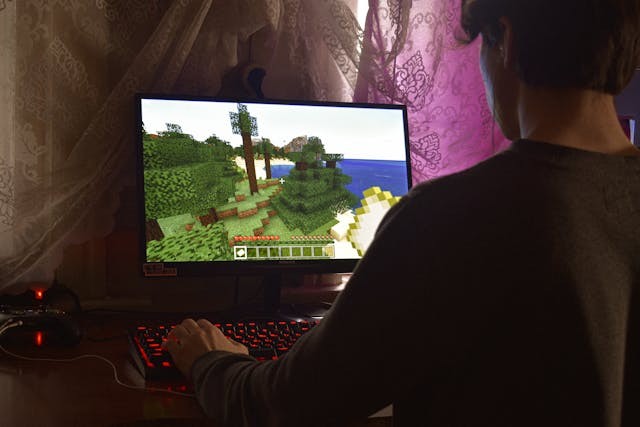
(Photo: Pexels/Alexander Kovalev)
Many enjoy spending time on their mobile devices or computers. However, doing so can be unhealthy and may even lead to psychotic experiences, according to researchers.
Too Many Video Games and Computer Usage Can Lead to Psychotic Experiences
In a new study, researchers from McGill University in Canada followed 1,226 participants born between 1997 and 1998. They learned that those who played more video games and those who increased their reduced their computer usage were likely to experience psychosis before they turned 23 years old.
"Trajectories of higher video gaming and increasing-then-decreasing ("curved") computer use during adolescence were associated with higher levels of psychotic experiences at age 23 years," the researchers wrote.
Five to seven percent of adults have had psychosis at some point in their lives; the first episode usually happens in adolescence.
To ascertain whether the participants had gone through periods of persecutory ideations, strange experiences, and perceptual abnormalities, a series of questions were posed to them, such as "Have you ever felt as if people seem to drop hints about you or say things with a double meaning?", "Have you ever felt as if the thoughts in your head are not your own?" and "Have you ever heard voices when you are alone?"
The researchers discovered that a higher frequency of video game use throughout adolescence was linked to a 3-7% increase in psychotic episodes. Nonetheless, a significant portion of this correlation could be accounted for by the frequent correlation between video games and other variables that might skew the results.
It is noteworthy that at the age of 12, increased video gaming was linked to several adversity indicators, such as inadequate household finances and issues with mental health and interpersonal relationships. The researchers pointed out that higher levels of video gaming in children and adolescents have also been linked to poorer socioeconomic position, male sex, and interpersonal and mental health issues.
According to the study, video games help people connect with others and manage their emotions more successfully than passive media like television. Youngsters and teenagers may find that the social and psychological components of gaming assist them in overcoming feelings of social exclusion and loneliness. On the other hand, difficulties, including unstable economic conditions, mental health problems, and interpersonal conflicts, can make it difficult to engage in different activities, which could cause a person to prefer video games.
Consequently, the researchers discovered that these additional variables could account for the correlation they observed between psychotic episodes and video games.
Additionally, they discovered a correlation between a curved trajectory of computer use -- which increases then decreases during adolescence -- and psychotic symptoms, resulting in a 4-5% increased occurrence.
ALSO READ: Self-Proclaimed Psychopath Shares How She Lives Her Life, Proud of Her Condition
Psychosis or Psychotic Experiences
Psychosis (also called a 'psychotic experience' or 'psychotic episode') is when you view or understand the world very differently from those around you. One may say that you 'lost contact' with reality.
Delusions, disorganized speech, and thought patterns, and hallucinations are the most prevalent forms of psychotic experiences. In the study, the reported psychotic experiences include hallucinations, delusions, disorganized thinking, paranoia, and depressive moods.
RELATED ARTICLE: How Do 7 to 9 Hours of Sleep Help Improve Mental Health?
Check out more news and information on Psychology in Science Times.














